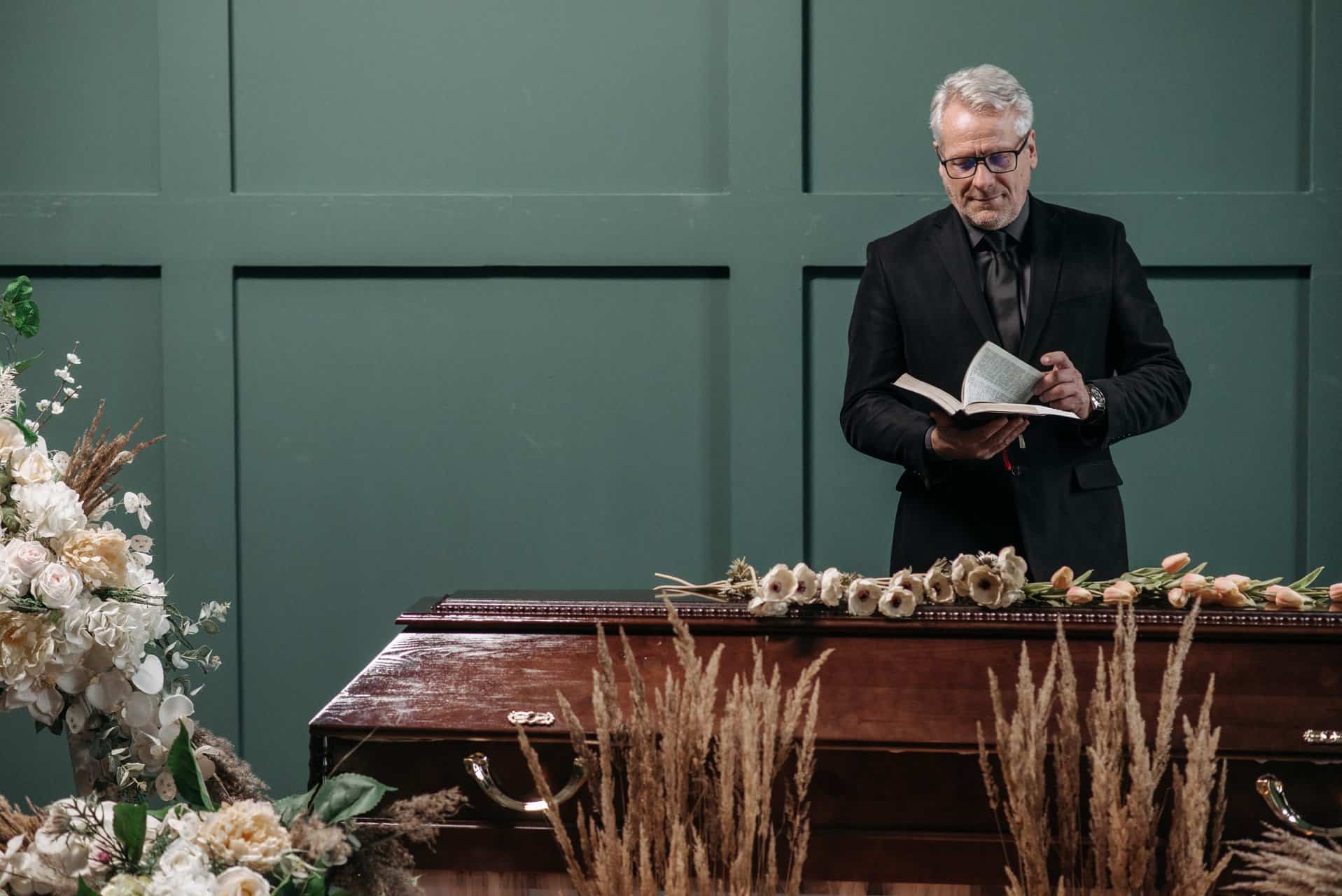When someone passes away, it is a difficult time for their loved ones. But what happens when the deceased has no family to take care of their affairs?
In the UK, there are procedures in place to ensure that the individual’s estate is taken care of and any remaining assets are distributed accordingly.
If someone dies without any known relatives, the first step is for authorities to try and locate any potential next-of-kin. This includes searching through personal documents such as wills or letters, as well as contacting government agencies like the Department for Work and Pensions or local councils.
If no family members can be found, then the individual’s estate becomes ‘bona vacantia,’ which translates to ‘vacant goods’ in Latin. From this point on, a representative from the Treasury Solicitor’s Department takes over management of the estate.
Procedures For Dealing With The Estate Of A Person With No Known Relatives
When someone passes away without any known relatives, their estate is handled by the Public Trustee. This government body is responsible for dealing with the individual’s assets and property, ensuring that everything is distributed according to the law. If there are no surviving relatives or close friends, the Public Trustee will step in as the executor of the estate.
One of the main duties of the Public Trustee in these cases is to locate any unclaimed assets that may belong to the deceased person. These can include bank accounts, insurance policies, and other financial holdings that were not properly identified during probate.
The Public Trustee will work closely with various institutions to uncover any unclaimed assets and ensure they are included in the estate distribution process.

Attempting To Locate Next-Of-Kin
When a person dies without any known relatives, it can present a multitude of legal challenges and moral implications. The first step in dealing with the estate of such an individual is attempting to locate any next-of-kin.
Funeral services are often called upon to assist in this process, which can involve searching through public records, contacting government agencies, and even hiring private investigators. If no family members can be found, there are several options for handling the estate.
- The estate may be passed on to the Crown
- It could be given to a charitable organization
- The estate may be taken over by the local authority
- The estate may be auctioned off or sold
Each case is different and requires careful consideration from legal professionals.
While it is certainly a difficult situation to navigate, there are steps that can be taken to ensure that the deceased’s assets are handled appropriately and ethically. In the following section, we will explore what happens if no family members can be found in greater detail.
What Happens If No Family Members Can Be Found
When someone passes away without any known family members, it can be a difficult and complicated situation. In the absence of legal guardianship, the responsibility for making funeral arrangements and administering the estate falls to the Public Trustee.
The Public Trustee is a government-appointed official who manages estates for those who have died without a will or next of kin. They will take control of the deceased’s assets and make decisions about their traditional funeral arrangements. If there are any outstanding debts or bills, these will need to be paid from the estate before any remaining funds can be distributed. Below is a table outlining the steps that the Public Trustee will typically take in this scenario:
| Step | Action |
|---|---|
| 1 | Locate and secure all assets of the deceased |
| 2 | Determine if there are any outstanding debts or liabilities |
| 3 | Arrange for funeral and burial/cremation services |
| 4 | Distribute any remaining funds according to intestacy laws |
It is important to note that if no heirs or beneficiaries can be located, then the estate may become “bona vacantia” (vacant property) and pass into ownership of the Crown. The Treasury Solicitor’s Department is responsible for managing these estates on behalf of the government. We understand that this can be a difficult time, but our team at Funeral Services UK is here to support you through every step of this process.
Bona Vacantia And The Treasury Solicitor’s Department
When someone dies without any known family, their estate becomes what is known as ‘bona vacantia’, meaning ‘ownerless goods’. These assets are then passed on to the Crown, and the responsibility for dealing with them falls to a government authority called the Treasury Solicitor’s Department.
The Treasury Solicitor’s Department is responsible for managing unclaimed property and ensuring that it is dealt with in a fair and appropriate manner. If someone dies without any known heirs or beneficiaries, their estate will be referred to this department, which will take steps to identify any potential claimants.
If no one comes forward within a certain period of time, the assets will be forfeited to the Crown.
Distribution Of Assets And Resolution Of The Estate
When someone passes away without any family or close relatives, the process of estate administration can become complex and challenging. In such cases, it is important to understand what happens to their assets and how the estate is resolved.
To begin with, the law states that when a person dies without any next of kin or will, their assets go to the Crown as bona vacantia. However, if there are any known beneficiaries or potential heirs, then they may have a claim to the estate.
Estate administration in such cases involves identifying these individuals and distributing the assets accordingly. However, legal complications may arise during this process which may require expert advice from solicitors or lawyers familiar with inheritance laws.
To ensure that your assets are distributed according to your wishes after you pass away, it is essential to have a valid will in place. If you do not have any close family members, you can still leave your assets to friends or charities in your will. This will help avoid legal complications and ensure that your estate is resolved smoothly.
Frequently Asked Questions
What Happens To The Personal Belongings Of Someone Who Dies Without Any Known Relatives?
If you’re dealing with the personal belongings of someone who has passed away without any known relatives, it can be a difficult and overwhelming task. However, there are legal obligations that must be followed in terms of disposing of their assets.
Donation options are available for items that are still usable or valuable, such as clothing or furniture. It’s important to contact a solicitor to determine the steps necessary to fulfill these obligations.
In the United Kingdom, funeral services can provide guidance and support throughout this process. Our team is dedicated to helping you navigate this challenging time with compassion and professionalism.
Who Is Responsible For Planning The Funeral Of Someone Who Dies Without A Family?
When a person dies without any family, the responsibility for planning their funeral falls on the local council, as they are legally obligated to do so.
For example, in 2018, a man passed away in London with no known relatives or next of kin. The council took charge of his funeral arrangements and invited members of the public to attend as mourners.
There are legal implications involved when dealing with funerals of those without family, as there may be questions about who pays for the service and how assets will be handled. However, funeral directors can assist with navigating these complexities and ensuring that the deceased receives a dignified farewell.
If you find yourself in this situation, it is important to reach out to your local council or funeral director for guidance on funeral arrangements.
Can Anyone Claim The Assets Of Someone Who Dies Without Any Known Relatives?
If someone dies without any known relatives, it is possible for their assets to be claimed by others. However, there are legal implications and inheritance laws that must be followed in order to do so.
In the United Kingdom, these laws dictate that if the deceased did not leave a will, their assets will go to their closest living relative. If there are no living relatives, the Crown can claim the assets.
It is important to seek legal advice before attempting to claim any assets of someone who has died without family as it can be a complex process.
Is There A Time Limit For Attempting To Locate Next-Of-Kin Of Someone Who Has Passed Away?
When a person passes away without any known next-of-kin, there are legal implications and ethical considerations to be taken into account.
In the United Kingdom, there is no set time limit for attempting to locate a deceased individual’s relatives. However, it is important to make every effort to find them before proceeding with distributing assets or making funeral arrangements.
If no family members can be located, the estate will likely be handled by the government through intestacy laws.
As funeral service providers, we understand the importance of respecting the wishes of the deceased and ensuring that their assets are distributed appropriately.
We work closely with legal professionals to ensure that all necessary steps are taken in accordance with UK law and ethical considerations.
How Does The Government Handle The Estate Of Someone Who Dies Without A Family Or A Will?
When someone passes away without any family or will, it can become a complicated legal process. The government may have to intervene to handle the estate of the deceased. This situation can lead to several legal implications that must be addressed.
It’s essential to understand the role of the government in handling these matters, as there are specific rules and regulations in place. When it comes to dealing with estates, it’s always best to seek professional advice from a solicitor who specializes in this area.
Remember, just because someone may not have any family or friends, their affairs still need to be handled with care and respect. As they say, ‘no man is an island.’ ‘and everyone deserves to have their final wishes and affairs handled properly.’
Conclusion
In conclusion, losing a loved one is already a difficult experience. However, when someone dies without any family or relatives, it can add an extra layer of complexity to the grieving process.
The fate of their belongings, funeral arrangements and assets are all up in the air. It’s essential to understand what happens in such situations.
Thankfully, the government has procedures in place to handle such estates through the Treasury Solicitor’s Department. It is crucial for individuals to make a will and ensure that their wishes are carried out upon their death.
In short, planning ahead can save a lot of troubles. If you find yourself dealing with such a situation or have questions about estate planning, seek help from trusted professionals today.
At Funeral Service UK, we understand that every individual deserves a dignified farewell despite their circumstances.


